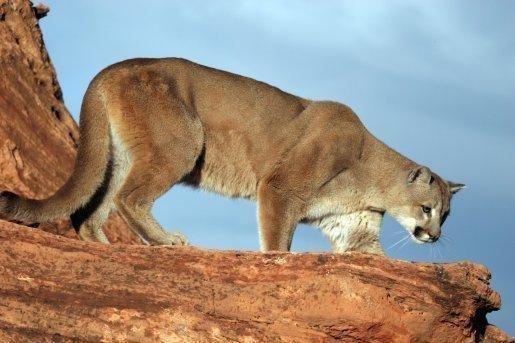A deer study that’s underway in Utah has provided two things — better information about the number of adult deer that are surviving from year to year and a chance to manage cougars in a way that should benefit deer the most.
Starting with the 2011 – 2012 cougar hunting season, biologists with the Division of Wildlife Resources would like to make the following changes:
- They want to establish nine large cougar management areas in Utah. Each area would have smaller hunting units within it. The units would be used to set hunting permit numbers for the entire area.
- After setting permit numbers for each unit in the area, biologists would add the number of permits together. The total number of permits would be the cougar objective for the entire area.В Hunting would continue on all of the units in the area until the total objective for the area was reached or the season ended.
- One additional factor — the number of female cougars taken in an area — could also result in the hunt in the area closing early. If a certain number of females were taken, the hunt would close early to protect the cougar population in the area.
More precise management
Kevin Bunnell, Wildlife Section chief for the DWR, says creating cougar management areas based on areas in the state where deer have had radio collars placed on them is a more precise way to balance the number of cougars and the number of deer.
“The study is giving us up-to-date information about the deer herds in these areas,” he says.
Bunnell says predation by cougars is just one of several reasons why adult deer die. And it’s probably not the major reason deer herds in many areas are struggling. “But when the number of adult deer in a
herd is below average,” Bunnell says, “that’s an indication that cougars might be one of the factors that are limiting the growth of the herd.
“In a situation like this,” he says, “temporarily increasing the number of cougars that are taken can allow a deer population to expand.”
Bunnell says cougars rarely prey on deer fawns. Instead, they focus mostly on adult deer.
Helping bighorn sheep
Eight of the nine cougar management areas are centered around areas where radio collars were placed on female deer starting in 2009. The ninth “area” is actually three separate areas that have large
populations of bighorn sheep.
DWR biologists want to manage the cougar areas that have bighorn sheep differently:
- A minimum number of cougars to be taken would be set on these areas. Regardless of the number of female cougars taken, the hunt would not end until the minimum number of cougars was taken or the seasonended.
Learn more, share your ideas
Information about all of the cougar hunting changes the DWR is recommending for the 2011 – 2012 season should be available at www.wildlife.utah.gov/public_meetings by July 18.
After you’ve reviewed the ideas, you can let your Regional Advisory Council members know your thoughts by attending your upcoming RAC meeting or by sending an email to them.
RAC chairmen will share the input they receive with members of the Utah Wildlife Board. The board will meet in Salt Lake City on Aug. 18 to approve rules for Utah’s 2011 – 2012 cougar hunt.
Dates, times and locations for the RAC meetings are as follows:
Southern Region
July 26
7 p.m.
Richfield High School
510 W. 100 S.
Richfield
Southeastern Region
July 27
6:30 p.m.
John Wesley Powell Museum
1765 E. Main St.
Green River
Northeastern Region
July 28
6:30 p.m.
Bingham Entrepreneurship and Energy Research Center
320 N. 2000 W.
Vernal
Central Region
Aug. 2
6:30 p.m.
Springville Civic Center
110 S. Main St.
Springville
Northern Region
Aug. 3
6 p.m.
Brigham City Community Center
24 N. 300 W.
Brigham City
You can also provide your comments to your RAC via email.В Email addresses for your RAC members are available at www.wildlife.utah.gov/public_meetings.
The group each RAC member represents (sportsman, non-consumptive, etc.) is listed under each person’s email address. You should direct your email to the people on the RAC who represent your interest.


